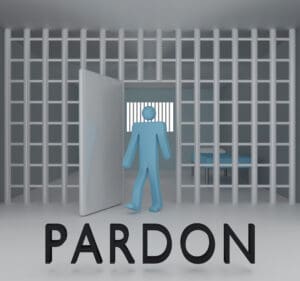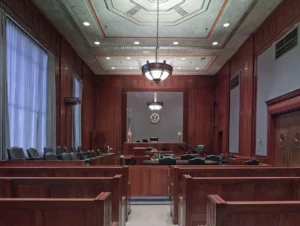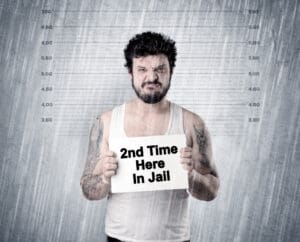Child abuse is a serious issue that affects children across the United States, and the legal system has put measures in place to address it. Child abuse laws in the United States are designed to protect minors from harm and hold abusers accountable for their actions. These laws cover a broad range of abusive behaviors, including physical, emotional, and sexual abuse, as well as neglect. Understanding these laws is crucial for parents, educators, social workers, and legal professionals involved in child welfare. This article explores the scope of child abuse laws in the United States, mandatory reporting obligations, penalties for offenders, and the rights of children to protection and safety.
Understanding Child Abuse Laws
Child abuse laws in the United States vary by state, but there are common legal frameworks and federal guidelines that protect minors from abuse. Each state enforces its own child protection laws, and the federal government supports these efforts through various acts, such as the Child Abuse Prevention and Treatment Act (CAPTA). These laws aim to prevent abuse, ensure the safety and welfare of children, and outline the responsibilities of adults and institutions in reporting and addressing abusive behavior.
Defining Child Abuse
Child abuse can be broadly defined as any intentional harm or mistreatment of a child under the age of 18 by a caregiver, parent, or other person in a position of authority. The legal definitions of child abuse encompass various forms of abuse:
- Physical Abuse: This involves causing physical harm or injury to a child through actions such as hitting, burning, shaking, or otherwise inflicting harm. Physical abuse is one of the most visible forms of abuse and often leads to criminal charges for the offender.
- Emotional Abuse: Emotional abuse refers to behaviors that harm a child’s self-worth or emotional well-being. This can include verbal abuse, isolation, humiliation, or constant criticism. Emotional abuse is harder to identify than physical abuse, but it can have long-lasting psychological effects on children.
- Sexual Abuse: Sexual abuse involves engaging a child in sexual activities, including touching, molestation, exploitation, or exposure to inappropriate sexual content. Sexual abuse is a severe crime, and those convicted face significant penalties, including imprisonment and being listed on sex offender registries.
- Neglect: Child neglect occurs when a caregiver fails to provide basic needs, such as food, shelter, clothing, medical care, or supervision. Neglect can be as damaging as other forms of abuse and is a common reason for child protective services intervention.
Federal vs. State Laws
While federal laws like CAPTA provide overarching guidelines for child protection, each state has its own set of laws and regulations to define and address abuse. For example, the age of a child, the responsibilities of mandatory reporters, and the penalties for abusers may vary by state. However, all states are required to follow federal guidelines to receive funding for child welfare programs, ensuring some consistency across the country.
Mandatory Reporting Laws
Mandatory reporting is one of the key components of child abuse laws in the United States. All 50 states have mandatory reporting laws that require certain professionals, such as teachers, healthcare providers, and social workers, to report any suspected child abuse to the appropriate authorities. Failing to do so can result in legal consequences for the mandatory reporter.
Who Is a Mandatory Reporter?
A mandatory reporter is a person who, by virtue of their profession, is legally required to report any suspicion of child abuse. These individuals typically include:
- Teachers and school personnel
- Healthcare professionals (doctors, nurses, and therapists)
- Social workers and child welfare professionals
- Law enforcement officers
- Clergy in some states
Mandatory reporters are not required to have definitive proof of abuse; they are only required to have reasonable suspicion that abuse is occurring. The goal is to ensure that potential cases of abuse are investigated quickly to prevent further harm to the child.
Reporting Procedures
The procedures for reporting suspected child abuse vary by state, but typically involve contacting the local child protective services (CPS) agency or law enforcement. In some states, there are specific hotlines for reporting child abuse, and the identity of the reporter is kept confidential to protect them from retaliation.
Once a report is made, CPS or law enforcement agencies will investigate the claim to determine whether the child is in danger and what steps need to be taken to ensure their safety. This may involve removing the child from the home, providing family services, or pursuing criminal charges against the abuser.
Legal Consequences of Child Abuse
The legal consequences of child abuse in the United States are severe and vary depending on the nature and severity of the abuse. Both civil and criminal penalties can be imposed on those found guilty of abusing a child.
Criminal Penalties
Criminal charges related to child abuse can result in significant penalties, including imprisonment, fines, and probation. In cases of physical or sexual abuse, the penalties are especially harsh, with offenders facing lengthy prison sentences. Sexual abuse crimes, in particular, carry additional penalties, such as mandatory registration as a sex offender.
- Imprisonment: Sentences for child abuse crimes can range from several years to life in prison, depending on the severity of the offense and whether it is a repeat offense.
- Fines: In addition to imprisonment, abusers may be required to pay fines, which vary by state and the specifics of the case.
- Probation: For less severe cases, or as part of a plea agreement, offenders may be placed on probation and required to undergo counseling or other rehabilitative programs.
Civil Penalties
In addition to criminal charges, abusers may also face civil lawsuits brought by the victims or their families. Civil lawsuits may seek financial compensation for the physical, emotional, and psychological harm caused by the abuse. In some cases, institutions that failed to prevent or report the abuse, such as schools or religious organizations, may also be held liable.
Civil penalties can result in large monetary settlements or judgments, which are intended to compensate the victim for their suffering and help cover medical and therapeutic expenses.
Loss of Custody and Parental Rights
In cases where the abuser is a parent or guardian, they may lose custody of the child and have their parental rights terminated. This is one of the most severe consequences of child abuse, as it permanently severs the legal relationship between the parent and child. Courts take this step only when it is determined that the child is in immediate and ongoing danger from the parent.
How the Law Protects Child Victims
The U.S. legal system has various mechanisms in place to protect children who are victims of abuse. These protections are designed to ensure that children are removed from harmful environments, receive necessary medical and psychological care, and have their rights defended in court.
Child Protective Services
Child Protective Services (CPS) is a government agency responsible for responding to reports of child abuse and neglect. CPS plays a critical role in the investigation of abuse allegations, the removal of children from dangerous situations, and the provision of support services to families.
When a report of abuse is made, CPS will typically launch an investigation to determine whether the child is in danger. If CPS finds that the child is at risk, they may remove the child from the home and place them in foster care or with a relative. CPS also works to provide services to help families improve their living situations and regain custody of their children when possible.
Legal Representation for Minors
In child abuse cases, minors may be assigned an attorney or guardian ad litem to represent their interests in court. This legal representative ensures that the child’s rights are protected and that the court considers their best interests in any legal proceedings. In some cases, these legal representatives may also provide recommendations to the court regarding the child’s placement, care, and long-term welfare.
Protection Orders
In cases where there is an ongoing threat to a child, courts can issue protection orders to prevent the abuser from contacting or coming near the child. These orders are legally enforceable and can include restrictions such as:
- Prohibiting the abuser from entering the child’s home or school
- Banning all forms of contact, including phone calls, texts, and emails
- Requiring the abuser to stay a certain distance away from the child
Protection orders provide an additional layer of security for child victims while legal proceedings are ongoing.
Trending Topics in Child Abuse Law
While child abuse laws have been in place for decades, there are several trending topics and emerging issues within the field that continue to shape the legal landscape.
Increased Focus on Emotional Abuse
In recent years, there has been a growing recognition of the serious harm caused by emotional abuse. Traditionally, emotional abuse has been harder to define and prosecute than physical abuse, but as more research highlights the long-term psychological effects of emotional abuse, lawmakers are beginning to take it more seriously.
Some states are considering legislation that strengthens penalties for emotional abuse and expands the definition of what constitutes emotional harm to a child. These changes reflect a broader understanding of the various ways in which children can be abused and the need for legal protections that address all forms of harm.
Cyber Abuse and Online Exploitation
As children spend more time online, the issue of cyber abuse and online exploitation has become a significant concern. Cyberbullying, online harassment, and the distribution of explicit materials involving minors are emerging threats that lawmakers are working to combat.
Several states have enacted or are in the process of enacting laws that specifically address online abuse, providing additional protections for children in the digital age. This includes increasing penalties for those who exploit children online and creating better mechanisms for reporting and investigating cyber abuse.
Expanding Mandatory Reporting Laws
There has also been a push to expand mandatory reporting laws to include more professions and individuals. Some advocates argue that anyone who interacts with children regularly, such as coaches, tutors, and even neighbors, should be considered mandatory reporters. This expanded responsibility would help ensure that abuse is caught and reported as early as possible.
What Can Be Done to Prevent Child Abuse?
While laws and legal consequences are essential for addressing child abuse after it occurs, prevention is equally important. Many organizations and advocates are working to raise awareness about child abuse and provide resources to prevent it from happening in the first place.
Public Awareness Campaigns
Public awareness campaigns that educate parents, teachers, and communities about the signs of child abuse and how to report it are vital in preventing abuse. These campaigns can also help reduce the stigma surrounding reporting abuse, encouraging more people to come forward when they suspect a child is being harmed.
Parenting Support Programs
Many states and nonprofit organizations offer parenting support programs designed to provide parents with the tools and resources they need to raise their children in healthy, nurturing environments. These programs often focus on stress management, child development, and positive discipline techniques, helping to reduce the risk of child abuse in the home.
School-Based Education
Educating children about their rights and how to recognize and report abuse is another critical component of prevention. School-based programs that teach children about personal safety, healthy relationships, and how to seek help if they are being abused can empower them to take action and seek protection.
Conclusion
Child abuse laws in the United States play a crucial role in protecting minors from harm, holding abusers accountable, and ensuring that children have a safe and supportive environment in which to grow. Understanding these laws, including mandatory reporting requirements and the legal consequences of abuse, is essential for anyone working with or caring for children.
While legal action is critical for addressing abuse after it occurs, prevention efforts must also be prioritized to stop abuse before it begins. By raising awareness, expanding mandatory reporting laws, and providing support for families and children, society can work towards a future where all children are safe from harm.





















